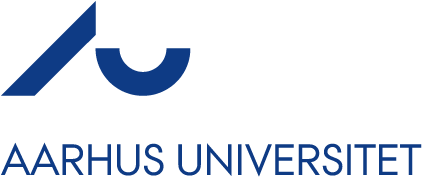A Danish Energy Data Space Could Contribute to the Green Transition: Expert Panel Presents Recommendations for How It Should Be Established

Challenge
The energy sector has a significant need to share large volumes of data in order to succeed with the green transition. Therefore, establishing a Danish energy data space, where actors in the sector can securely share data under common rules and standards, can be highly beneficial.
However, to create and realize a Danish energy data space, it is necessary to establish clear frameworks and guidelines for how such a data space should function in practice.
Solution
Digital Energy Hub, in collaboration with Alexandra Instituttet and KMD, has convened an expert panel consisting of 18 experts from 15 key companies and organizations within the Danish energy sector - entities that would be potential participants in a Danish energy data space.
The expert panel met twice in the fall of 2023 and developed use cases along with 9 concrete recommendations for what is required to successfully establish and implement a Danish energy data space. The focus is especially on increasing data sharing through data governance, interoperability, standardization, and cybersecurity.
Result
Expert panel recommendations:
- Central and neutral anchoring
The Danish Energy Agency should serve as the Governance Authority for a Danish energy data space, while the Danish Agency for Digital Government should play a central role in cross-sectoral development - and should therefore also play a central role in the Governance Authority of the Danish energy data space. - Governance Authority’s tasks:
- Defining the purpose of the data space
- Developing the rulebook and framework
- Onboarding: identity verification, membership registry, and self-descriptions
- Maintaining the membership registry
- Enforcing the rules and excluding violators
- Preparing the energy sector for data spaces
- Running open stakeholder forums and working groups
- Further developing the rulebook through knowledge exchange
- Ensuring ongoing evaluation and adaptation of the rules - Create a clear purpose description
In the developed use cases, the focus is on a data space that supports sustainable development of the energy system with a socio-economic purpose. The purpose can be expanded over time through new use cases and working groups. - Simple rules
Start with a few simple rules, primarily participation requirements and data source descriptions, enforced by the Governance Authority or through eID. The requirements should be simple to facilitate participation and data sharing. Data exchange should begin with bilateral data processing agreements, which can gradually be digitized as technology and trust develop. - Further development through working groups
The expert panel recommends starting with a simple format and avoiding waiting for standards. Working groups should be continuously established to develop and define formats and data models, which will be integrated into the data space rulebook, in cooperation with European and international standardization initiatives. - Develop more use cases
The expert panel recommends developing Danish use cases that demonstrate the value of data sharing in the energy system - both to society and to participants - to make it easier for external stakeholders to understand the benefits of data spaces. - Should be initiated with public funding
The expert panel agrees that the energy data space should be included in the national budget as critical infrastructure. This support is necessary until the level of economic activity through the data space justifies self-financing. - Need for a Danish Data Space Service and Innovation Hub
It is recommended to establish a Danish Data Space Service and Innovation Hub to bring stakeholders together, develop use cases, and promote collaboration between public and private actors, including national clusters, interest organizations, and business development centers. - Companies must be made data space-ready
It is recommended to establish a task force - potentially under the Data Space Innovation Hub - that supports Danish companies in becoming data space-ready. The task force should inform about legislation and guide companies in structuring data and working with data standards and interoperability, involving national clusters and business centers.
PoC for a Danish Energy Data Space:
Based on the expert recommendations, a project was launched to develop a Proof of Concept (PoC) for an energy data space, based on a specific use case where a project partner needs to share or access data to develop a specific service. The use case itself was not the primary focus of the project but serves as a necessary framework for developing and testing the core building blocks of a data space - with particular emphasis on the data space connector and data space governance.










